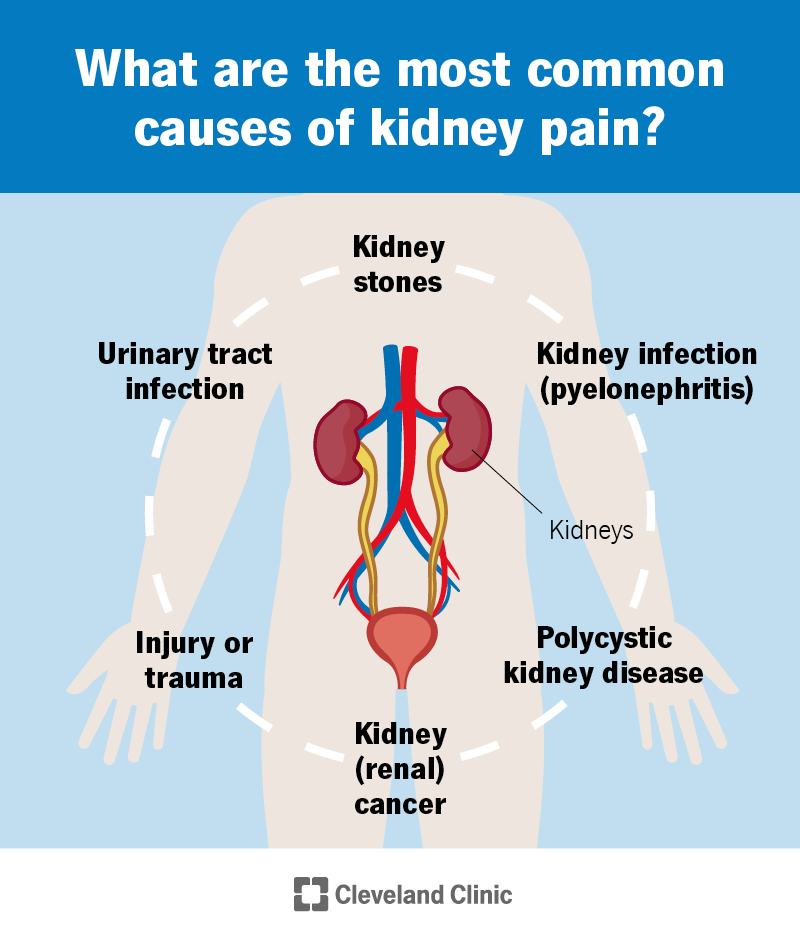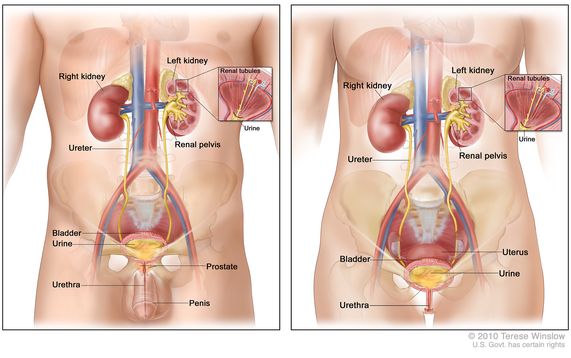Kidney Stones vs UTI: Specialist Insights on Symptoms, Diagnosis, and Management
Checking Out the Effects and Causes of Kidney Stones in Comparison to Urinary System System Infections: An In-depth Overview
The expedition of kidney stones and urinary tract infections (UTIs) reveals a complicated interaction of signs and underlying reasons that necessitate mindful examination. What are the essential differences in their signs, and exactly how might these notify therapy approaches?
Overview of Kidney Stones
Kidney stones, also referred to as renal calculi, form when certain substances in the urine crystallize and aggregate, leading to the advancement of difficult deposits within the kidneys. These stones can vary in size, ranging from a grain of sand to a golf ball, and can be composed of different products, the most typical being calcium oxalate, uric acid, struvite, and cystine. The formation of kidney stones is affected by a number of aspects, consisting of dietary routines, liquid consumption, and genetic tendency.
Signs of kidney stones may include severe pain in the back or side, blood in the pee, queasiness, and regular peeing, especially as the stone moves through the urinary tract. Medical diagnosis commonly entails imaging researches such as ultrasound or CT scans, along with urinalysis to recognize the rock's structure.
Treatment alternatives differ based upon the size and kind of rock, in addition to the seriousness of symptoms (Kidney Stones vs UTI). Tiny rocks may pass naturally with enhanced fluid consumption, while larger stones might need medical treatments such as lithotripsy or medical elimination. Comprehending the pathophysiology and risk variables connected with kidney stones is crucial for efficient prevention and monitoring
Overview of Urinary System Tract Infections
Urinary tract infections (UTIs) are usual microbial infections that affect any type of component of the urinary system, consisting of the kidneys, ureters, bladder, and urethra. They predominantly happen when germs, usually from the gastrointestinal tract, go into the urinary system, leading to swelling and infection.
The frequency of UTIs is notably higher in ladies than guys, mostly as a result of physiological differences, such as a shorter urethra. Risk elements consist of sex-related task, particular contraceptive approaches, urinary system retention, and dehydration. The diagnosis of UTIs is generally confirmed through urine tests, which may expose the existence of microorganisms, leukocyte, or red cell.

Signs of Kidney Stones
The discomfort connected with kidney rocks can show up in different methods, typically leading individuals to look for clinical interest. One of the most common signs and symptoms is extreme discomfort, normally local in the lower back or side, which might emit to the abdominal area or groin. This pain, frequently described as sharp or cramping, can take place instantly and might vary in intensity.
In addition, individuals may experience hematuria, or blood in the pee, which can range from tiny total up to visible staining. This sign may be come with by modifications in urinary behaviors, such as enhanced frequency or seriousness, as well as pain during peeing. Queasiness and vomiting are additionally blog common, often arising from the body's reaction to extreme pain.
Sometimes, individuals might experience high temperature and chills, specifically if a secondary infection establishes as a result of the obstruction created by the stones. In general, the mix of severe pain, hematuria, transformed urinary patterns, and intestinal signs and symptoms can offer considerable understanding into the presence of kidney rocks, necessitating prompt clinical analysis and intervention. Recognizing these signs is crucial for prompt diagnosis and reliable monitoring of the why not try here problem.
Signs of Urinary System System Infections
Infections within the urinary system system frequently provide a series of distinctive signs that can significantly affect life. One of the most usual signs and symptoms include a persistent urge to urinate, typically gone along with by a burning feeling throughout peeing, called dysuria. People might likewise experience boosted regularity of peeing, creating little amounts of urine each time.
Other noteworthy symptoms include foul-smelling or cloudy urine, which might show the visibility of microorganisms or pus. Sometimes, urine may appear pink or red as a result of the visibility of blood, a problem understood as hematuria. Furthermore, individuals might experience pelvic pain or stress, which can even more intensify the feeling of necessity.
Systemic signs and symptoms may also manifest, such as high temperature, cools, and tiredness, especially if the infection has actually risen to the kidneys. It is important to acknowledge these symptoms early, as untreated urinary go system tract infections can lead to extra serious problems. Kidney Stones vs UTI. Prompt clinical attention is advised when these signs and symptoms are observed, allowing for appropriate analysis assessment and therapy to minimize discomfort and protect against additional wellness problems
Root Causes Of Each Problem
Frequently, kidney rocks and urinary system infections occur from distinctive yet often overlapping causes that can influence individuals in different ways. Kidney stones typically create due to metabolic variables, nutritional selections, and genetic proneness. Enhanced degrees of calcium, oxalate, or uric acid in the urine can bring about stone development. Dehydration, insufficient liquid intake, and high-sodium diet regimens can intensify these conditions, advertising crystallization within the urinary system tract.

Recognizing these unique causes is critical for avoidance and therapy. Kidney Stones vs UTI. While way of life adjustments may reduce the risk of kidney rocks, ideal health and timely treatment of urinary tract infections are essential for reducing their reappearance and linked difficulties
Verdict
In summary, kidney rocks and urinary tract infections existing unique symptoms and underlying causes. Kidney rocks are defined by extreme pain and metabolic variables, while urinary system infections primarily include microbial infections leading to urinary seriousness and pain.
The exploration of kidney rocks and urinary system tract infections (UTIs) exposes a complex interplay of signs and symptoms and underlying causes that call for mindful evaluation.Urinary system system infections (UTIs) are common bacterial infections that influence any part of the urinary system, consisting of the kidneys, ureters, bladder, and urethra.Regularly, kidney stones and urinary system infections emerge from distinct yet often overlapping reasons that can affect individuals in a different way.In recap, kidney rocks and urinary tract infections existing distinctive signs and symptoms and underlying causes. Kidney stones are defined by serious discomfort and metabolic factors, while urinary tract infections mainly include microbial infections leading to urinary system necessity and pain.